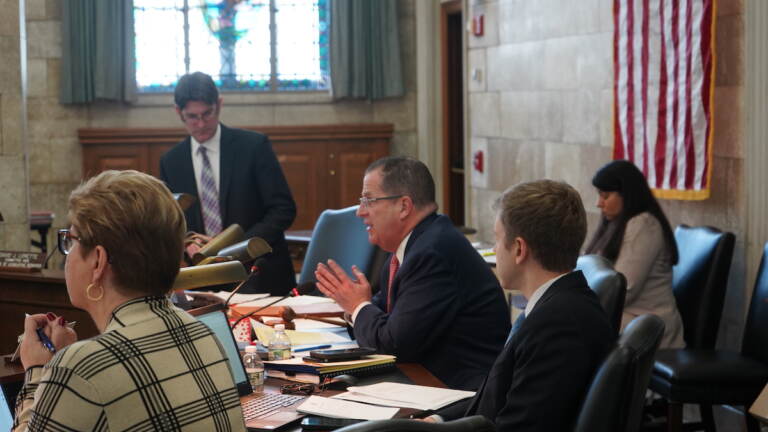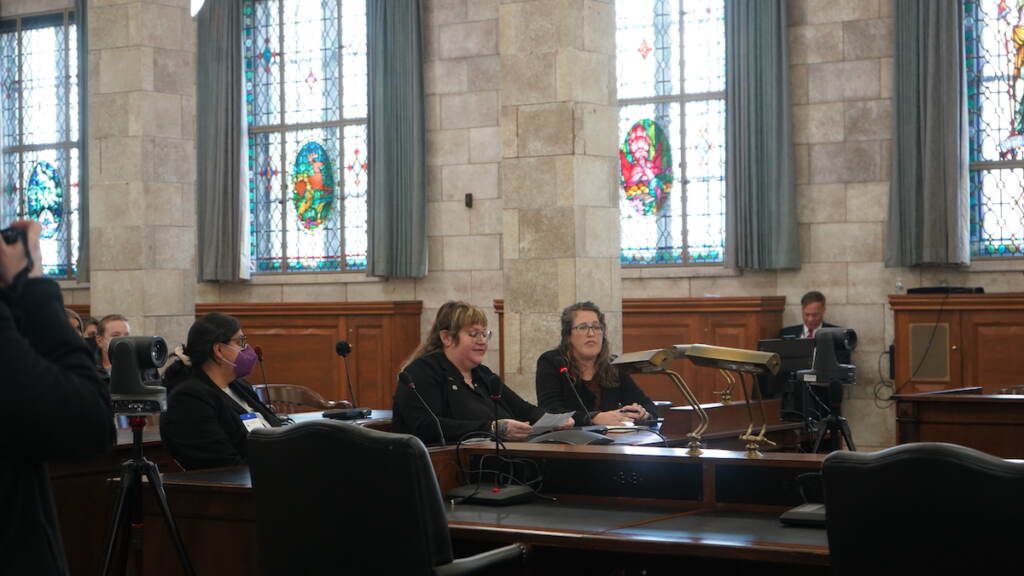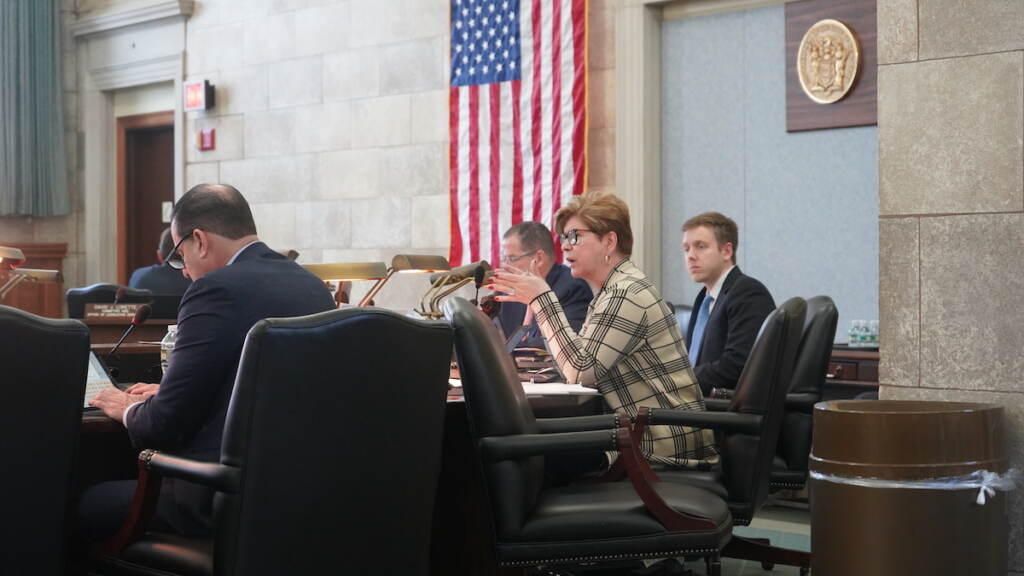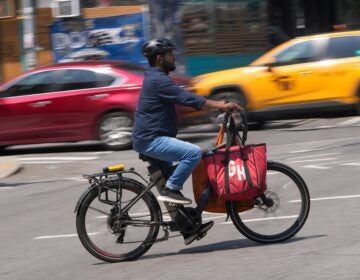N.J. lawmakers want to pass harsher penalties for fentanyl despite pleas from social justice and harm reduction advocates
Advocates argue that new legislation upping penalties for fentanyl will unfairly punish people from communities impacted by the war on drugs.
Listen 0:59
Sen. Brian Stack (D-Hudson) speaks on a bill that would increase penalties for fentanyl-related crimes in New Jersey. (Tennyson Donyéa/WHYY)
The New Jersey Legislature is moving ahead with proposals to crack down on drug-related crime — despite pleas from social justice advocates who claim new legislation will unfairly punish people from communities impacted by the war on drugs.
State lawmakers want to crack down on fentanyl by upping penalties and going after street drug dealers.
Under one bill, manufacturing and distributing more than five grams of fentanyl would be upgraded to first degree crime. Another specifies possession of less than 10 grams of fentanyl as a third degree crime.

At a Senate Judiciary Committee on Monday, Bre Azanedo , a leader with Black Lives Matter Paterson, argued that enacting more punitive measures won’t curb drug abuse in communities already grasping for solutions.
Azanedo testified about watching loved ones struggle with substance abuse.
“Prison is not the answer,” Azanedo said, wiping away tears. “People need harm reduction services. They need love. They need compassion.”

Members of the New Jersey Harm Reduction Coalition claimed that enhancing criminal penalties will not lower the demand for illicit drugs, contending that the state should treat drug abuse as a public health issue and invest more state funding into medical treatment.
“[Demand] has not gone away in the 50-plus years of harsher and harsher drug war enforcement. What these bills will do is destroy any faith that people who use drugs and people who live in neighborhoods targeted by the drug war once had in calling 9-1-1 to respond to an overdose and help someone,” said Caitlin O’Neill, co-director of the coalition.

Monday’s meeting became tense at moments with most Senate Judiciary Committee members counterclaiming that the legislation isn’t meant to criminalize drug users.
“This bill is solely designed to punish people who are engaged in the sale, for profit, of drugs that are killing New Jerseyans,” Sen. Mike Testa (R-Cape May) “It sounds nice to say that we shouldn’t punish people who are on drugs. We’re actually not engaging in that. The state has had a seismic shift for the last two decades in not punishing people who are solely addicted to drugs, and recovery court has shown remarkable results.”

The committee overwhelmingly approved the crime legislation. Sen. Nellie Pou (D-Passaic) was the only holdout.
“I’m not easy on crime. That’s what everybody might want to say, but I’m not ready to lock the key on someone that ought to be given the opportunity to get the help they need,” Pou said.
Pou also agreed with advocates who said that lawmakers should submit a racial impact statement pursuant to a 2018 law that requires racial impact statements for policy changes impacting pretrial detention, sentencing, and parole.
“We cannot incarcerate our way to public safety. We urge lawmakers to vote ‘no’ on the following bills and at the very least request racial impact statements as is required by law,” said Racquel Romans-Henry, director of policy for Salvation and Social Justice.

Committees also approved measures that increase penalties for car thefts and home burglaries.
According to The Sentencing Project, Black New Jerseyans are 12.5 times more likely to be incarcerated than white residents.
WHYY is your source for fact-based, in-depth journalism and information. As a nonprofit organization, we rely on financial support from readers like you. Please give today.







